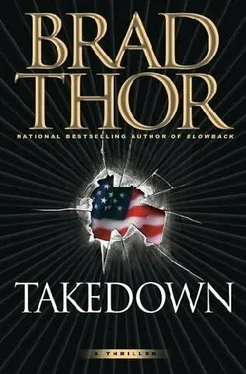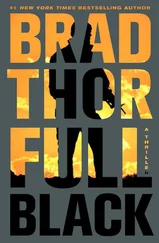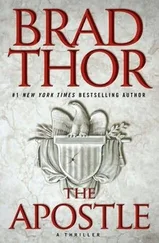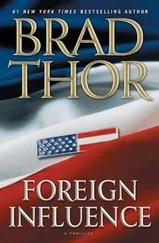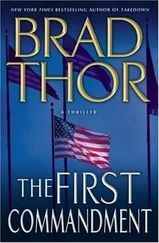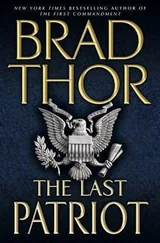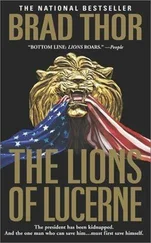The next door was marked with both the English and Arabic words for washroom. He pushed the door open and quietly slipped inside. Having looked inside every stall and confident that they were all empty, he exited and continued his search. There were only about five offices remaining. The next was empty, as was the next after that. As Ali quickly moved toward the last three rooms, he found the next one he approached was locked. A handwritten sign identified its function as a sterile treatment room and listed a set of instructions to follow before entering. Abdul Ali kicked it open and inside found a surgical table, a medical recovery recliner, a wheelchair, various first aid supplies, and right in the center of it all a high-end Nova Medical Systems dialysis machine.
The next room was the nerve center of the interrogation operation. The walls were covered with dry-erase boards, maps of the Middle East and Africa, multiple photographs of the al-Qaeda hierarchy, as well as various organizational and relationship diagrams. Desks were laden with audio and video equipment as well as monitors tuned to cameras that must have been positioned all over the floor. Seeing the image on the largest monitor, Abdul Ali turned and fled.
Bursting into the room across the hall, he was ready to weep with joy. There, bound to a small, wooden chair was Mohammed bin Mohammed. Next to him, unconscious and severely beaten, was a man Ali had never met but most definitely knew of. The last he’d heard, the man had been in Canada. He had no idea Mohammed’s nephew, Sayed Jamal, had been taken prisoner.
As he rushed to Mohammed’s side, he saw that he was naked from the waist down, his penis red and swollen beyond belief. “What unspeakable acts have they done to you, my brother?” he asked as he removed a knife and begun cutting away the restraints.
At first, Mohammed didn’t want to believe his eyes. His body was so racked with pain and his mind was clouded by the horror of his torture. Surely it was some sort of trick. Then he saw Ali holster his weapon and remove a knife to help cut him free. It was Ali, wasn’t it? At this point, he didn’t know what to believe. “Is it you?” he asked, his voice hoarse from his screaming.
“Yes, Mohammed, it is I. I have come to take you home,” replied Ali.
Looking in the direction of his nephew, Mohammed asked, “And Sayed?”
Ali reached over and felt the man’s pulse. It was weak, too weak. “I’m sorry. There is nothing we can do for him. He is not going to make it.”
Mohammed hung his head. “At least his family is already waiting for him in paradise.”
“What do you mean?”
“The Americans took each one of his children and killed them. Then they took his wife. They made us both watch it on television, hoping it would force me to tell them what they wanted to know.”
“And what did you tell them?” asked Ali, concerned that everything he had been through, everything they had risked might now be for nothing.
Mohammed’s face was a block of implacable granite. “I told them nothing. Even while they killed Sayed’s family one by one, I told them nothing.”
Ali looked at Jamal once again. His trouser legs had been sheared away, and his knees were a mass of bloody pulp. “What did they do to him?”
“They used a drill,” he croaked.
Ali had no intention of making his colleague relive any more of the brutality. “Can you stand?” he asked as he helped Mohammed to his feet. “I have a safe place I can take you.”
Mohammed shook his head. “My pain is too great. They stopped my dialysis as a part of the torture. You’re too late. Soon I will follow Sayed.”
Ali shook his head. “I have a hotel room near here with a small dialysis machine. You are not going to die, my brother. Not today. But we must get to safety quickly.”
“I fear I won’t be able to walk very far. I have grown too weak.”
Ali thought about it for a moment and then told Mohammed not to move. Leaving him, Ali went back out into the hallway and made his way to the dialysis room.
After unfolding the wheelchair, he rifled through the cabinets until he found a pair of surgical scrubs big enough to fit Mohammed. He gathered a few additional supplies and was putting them all in a small bag, when he heard a voice from behind him say, “Don’t even think about moving.”
Though Abdul Ali had been meticulous about clearing the otherwise empty rooms, what he didn’t realize was that, as in many consulates and embassies around the world, hidden passageways as well as escape exits were often part of the architecture. It was just such a passageway that had allowed the surviving marine, Brad Harper, to create an advantage and assume the upper hand.
He had already been on his way back with the medical kit when the blast from the first explosion had knocked him to the ground. When the second, smaller explosion detonated, he wisely rushed back to the control room to see what was happening on the closed-circuit monitors.
Now, as Harper held his modified M16 Viper on the man who had just assassinated his entire team, he was very tempted to administer justice himself. All it would take was a simple pull of the trigger, and this entire nightmare would be brought to an end, but Harper knew better. He also knew the man he had in front of him was extremely dangerous and could have any one of a hundred possible tricks up his sleeve. “I’ve got every reason in the world to kill you right now. Try anything stupid and I will pull this trigger. Do you understand me?”
Ali had no idea how he had missed this man. His eyes darted around the room as his mind scrambled for a way out.
Harper shifted his sights a fraction of an inch to the right and he pulled the trigger, sending a quick burst of fire over the man’s shoulder and into the Sheetrock in front of him. “Do you understand?” he repeated.
Ali nodded his head.
“I want you to raise your hands, slowly. That’s it. Nice and easy. Now interlace your fingers behind your head.”
Once Ali had complied, Harper ordered him onto his stomach. With the man fully prone, the young marine cautiously leaned down to cuff him. It was at that moment that Mohammed bin Mohammed snuck up behind him and with the very last reserves of strength, hit the large marine not once but twice across the back of the head with a fire extinguisher, knocking him to the floor unconscious.
As Harvath and the rest of his team rapidly made their way to Libya House, things were beginning to make sense. In 2003 the United States made headlines when in exchange for agreeing to lift its sentence of rogue-nation status and restart diplomatic ties with Libya, the Libyans agreed to abandon their weapons of mass destruction, discontinue any support of terrorism, and enact sweeping social and democratic reforms.
Such unprecedented cooperation in the war on terror might very well have been just the surface of a much deeper and much quieter deal. It was no wonder that even with his Polo Step clearance Harvath had not been able to learn which top al-Qaeda member the United States had taken into custody. Somewhere at State or the Department of Justice, somebody was walking a very thin legal line. The only way Harvath could figure they had pulled it off was to have brought M amp;M up to the edge of international waters on a private craft of some sort and flying him the rest of the way by chopper, then dropping him on the roof of Libya House, where the Libyans took over.
Though he was sure the American involvement was supposed to be nothing more than “observer” status, he knew who was really running this show. In fact, he had a pretty good feeling he knew the person by name: Mike Jaffe. What he didn’t have a good feeling about was their being able to get access to Libya House. Gary was right. It was sovereign territory and without an invitation, the only way they were going to be able to get inside was by force. But as it turned out, that wasn’t necessary.
Читать дальше
